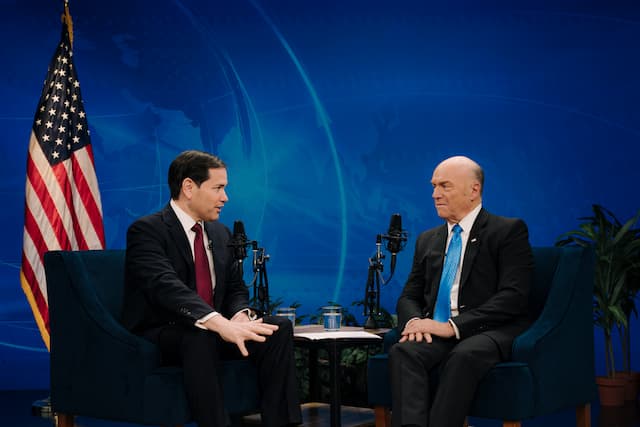God’s couriers
Our previous post stirred up some discussion when I suggested that it is God who issues the gospel call, so we don’t need to devise mechanisms to get people to respond. Let’s clarify.
Firstly, we are bearers of the good news — that God is calling all people back under his kingship in his anointed. God’s call is normally delivered through people. That’s not surprising, since we were designed to make God known in creation (his image).
A handful of NT texts explicitly refer to God making his call through us (though it’s always God issuing the call). Our king has assigned specific tasks to different leaders, so there are good news couriers (evangelists), regal ambassadors (apostles), and so on (Ephesians 4:11). These aren’t watertight tasks: a pastor can be asked to do the work of an evangelist (2 Timothy 4:5).
We’re couriers of God’s call, but a courier’s task is to deliver the message, not design ways to get the recipient to respond. Paul was passionate about delivering God’s call (2 Corinthians 5:20). He was also cautious about techniques of persuasion that would cause people to respond to him instead of to God (1 Corinthians 2:4-5). The altar call is a recent invention (started in the 1800s). Was it invented to get people to respond to us?
Instead of taking on the responsibility of getting people to respond to us, let’s be couriers of God’s call. God is calling for loyalty to his anointed leader (faith), reorientation to his kingdom vision (repentance), publicly identifying as brought to life in him (baptism), citizenship in his reign (obedience). Let’s deliver God’s call, trust his Holy Spirit to do the regenerative work, and see these responses to God as what matters. There’s such joy when we see people who are no longer living for self but for him (John 13:35).
Just look at the scope of the call we (God’s couriers) are asked to deliver. God isn’t merely calling select individuals to personal salvation. Our sovereign is calling all people back into his governance where we should have been all along! This was his multi-millennia project with the Abrahamic family. The nation God established through Moses was God’s demo for the nations. King David (God’s anointed) represented God’s reign on earth. Then, in the midst of their national failure, God sent his anointed ruler (Christ) who was rejected by his people and put to death in collusion with their oppressors. God raised him up out of death to the throne, so that’s how God’s anointed became our leader (Lord).
This is the gospel of the kingdom — the good news that God has released the world from oppression under sin, into the reign of his anointed. We are couriers of this good news: God calling everyone back into his kingship. As expressed in one of Paul’s earliest letters, God calls you into his kingdom and splendour (1 Thessalonians 2:11).
So, call is the keyword for God inviting everyone into his kingship. A call from a king is a summons, a regal command. Call is a gentle word fitting how God restored his kingship (through the cross), but command might be the right word when dealing with powerful people. Addressing the elite in Athens, Paul said: he now commands all people everywhere to repent (Acts 17:30).
There’s the scope. God’s call is not for a few select individuals; it’s for all people everywhere. God calls everyone to reorient (repent) to life under the one he has anointed to sort out everything that’s wrong and restore justice to the planet (17:31).
God calls us to life in his anointed. One day, earth will be like that: every knee will bow and everyone will confess his kingship. Every enemy will be under his feet. That’s the call God has issued. That’s the hope we embody to the world.
We aren’t there yet. Unlike earthly rulers, God is in no hurry and doesn’t force himself on us. He continues to call the world into the kingship of his Christ.
What joy it is to live as the kingdom of the Messiah now, while God’s call is still going out. We’re privileged to be the picture in the present of what the whole world will be like when everything is set right. If God is calling the whole world into life in his Messiah, we respond to God’s call by living life now as his kingdom. That’s the primary (and ultimate) way we respond to God’s call.
And that’s the reason the NT letters provide no instruction at all on how church people should convert their neighbours. The emphasis is entirely on being what God has called us to be (the community of the Messiah) because that’s where the world is headed.
Ephesians 1–3 contains the most astounding gospel summary. Ephesians 4–6 says nothing about getting our neighbours to sign up. What is says is to live our calling:
Ephesians 4 1 As a prisoner for the Lord, then, I urge you to live a life worthy of the calling you have received. 2 Be completely humble and gentle; be patient, bearing with one another in love. 3 Make every effort to keep the unity of the Spirit through the bond of peace. 4 There is one body and one Spirit, just as you were called to one hope when you were called; 5 one Lord, one faith, one baptism; 6 one God and Father of all, who is over all and through all and in all. (NIV)
The role of the church is to be in the present what God has called the world to be in the end. Yes, we’re couriers of God’s good news, and it’s being the good-news community that makes that hope credible — when people can see what the world looks like when it’s restored in Christ.
All the ministers of Jesus’ government are commissioned to lead his community into the mature expression of humanity in his kingship. Even the evangelists (4:11-13).
Raw data
To see how the NT epistles uses the language of God calling to describe him summoning all creation into restored life in his anointed, see “Called” in the NT epistles.
Seeking to understand Jesus in the terms he chose to describe himself: son of man (his identity), and kingdom of God (his mission). Riverview College Dean
View all posts by Allen Browne





